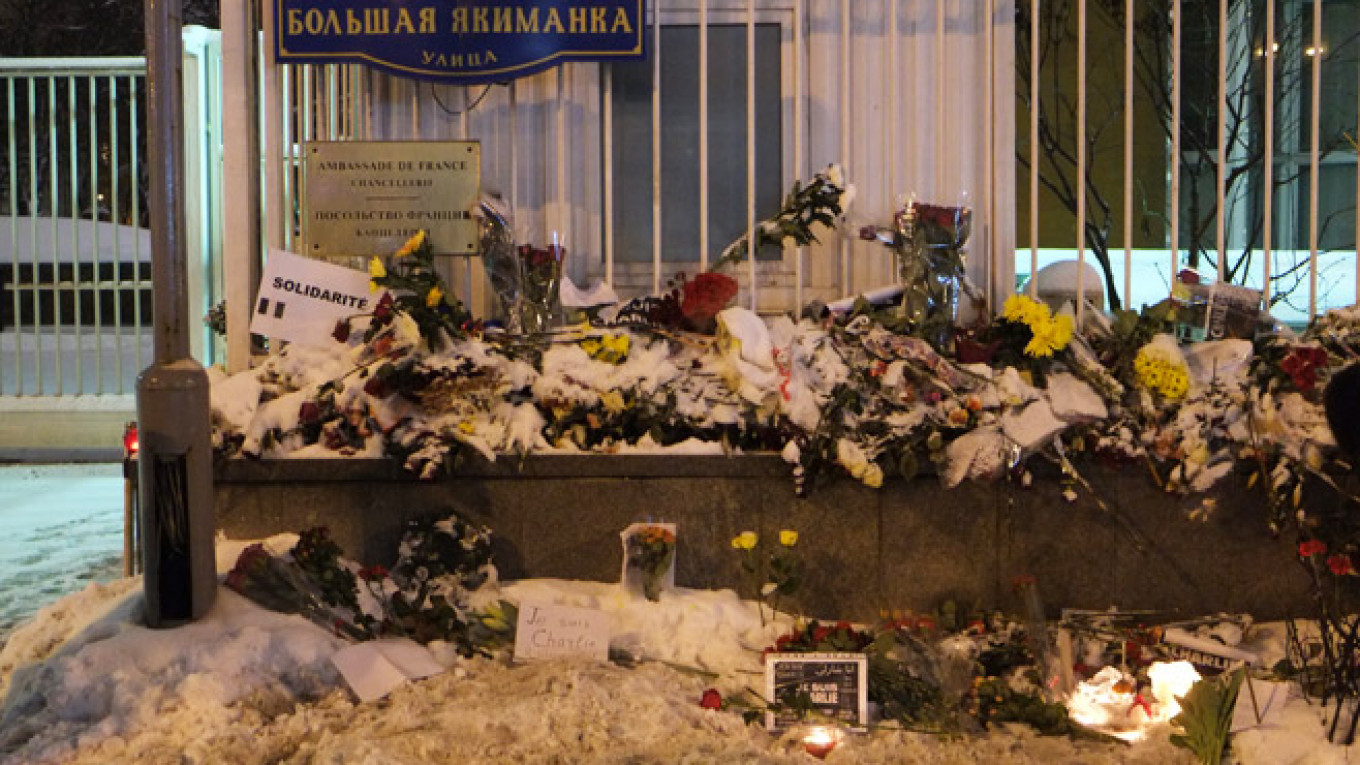In late January, an official in the Blagoveshchensk branch of the Central Bank shot and killed his boss and two colleagues, and then ended his own life. Dozens of people attended the killer's funeral, bringing wreaths, flowers and condolences. Their rationale: The killer was a good man while his boss, on the other hand, was a bad person.
Most of the coverage in regional and national media concluded that the boss had "driven" the man to violence. That is their simple and clear-cut explanation for the murder of several innocent people.
I believe that there is a deep and tragic reason behind Russian society's attitude toward these events. Russians lack empathy for victims. They see any misfortune as a sign of weakness that does not warrant empathy.
In Europe, expressions of empathy motivate such public campaigns as "Je suis Charlie." But for Russians, it requires no mental stretch to imagine the lot of the victim. An ancestor, neighbor or friend has already fallen victim in some way. Violence and suffering are not abstractions in Russia, but daily realities.
In fact, that fear of the aggressor and of becoming a victim actually drives Russians into the arms of the aggressor. When you rule out ever becoming a victim, you unwittingly align yourself with the aggressor.
Soviet and Russian literature cite numerous examples of children who, during former Soviet leader Josef Stalin's repression, disowned their fathers after their arrest by saying: "They don't arrest people for no reason. That means he must be an enemy."
That is why, in contrast to the reaction in the civilized world, many mainstream Russian media outlets responded to the Paris killing of Charlie Hebdo cartoonists by Islamic extremists with language they can understand. "The fault lies with the Americans and with Europeans, who welcomed the murder of Russian 'infidels' during the two Chechen Wars. Also, Europeans do not show enough respect for religious values at home and are overly tolerant in general."
The first article that the Izvestia newspaper ran on the Charlie Hebdo murders was titled "Tolerance kills." It was not "terrorists," "misguided people" or even "guns" that kill, but "tolerance." In other words, respect for the values of others.
A January poll by state pollster VTsIOM reveals the Russian perception of reality: 39 percent of respondents said they do not condone but "understand the reasons why" the terrorists attacked Charlie Hebdo and 5 percent even approve of their actions.
Also, 30 percent believe that the main reason for what happened is "the behavior of the French journalists who offended the religious values of Muslims." What's more, 25 percent said that terrorist act occurred because of the French government's policy that "allows journalists to offend religious feelings."
Russians know the answer to the question: "Is there ever an excuse for murder and violence?" The answer: "Yes — always."
They argue that Europe has rejected conservative values. However, even a glance at historical and modern Europe reveals that conservatism exists there. It is probably that conservatism, combined with the caricatures and the permissive attitudes toward religion, sex, hedonism and other "bad" excesses that, together with Christianity and its sacrifice and dedication, make European culture what it is.
The idea that there are some abstract, a priori "values" for which people can and should kill is a throwback to the 20th century.
The secret of Russians' perceptions of the Charlie Hebdo shooting and many other things in the world, stems from the special and historically unique relationship between the "mysterious Russian soul" and the phenomenon of violence, as well as the relationship between aggressor and victim.
It results from numerous psychological factors, historical experiences and fears — and from a shortage of rational thinking and balanced reflection.
Gleb Kuznetsov is a Moscow-based political commentator.
A Message from The Moscow Times:
Dear readers,
We are facing unprecedented challenges. Russia's Prosecutor General's Office has designated The Moscow Times as an "undesirable" organization, criminalizing our work and putting our staff at risk of prosecution. This follows our earlier unjust labeling as a "foreign agent."
These actions are direct attempts to silence independent journalism in Russia. The authorities claim our work "discredits the decisions of the Russian leadership." We see things differently: we strive to provide accurate, unbiased reporting on Russia.
We, the journalists of The Moscow Times, refuse to be silenced. But to continue our work, we need your help.
Your support, no matter how small, makes a world of difference. If you can, please support us monthly starting from just $2. It's quick to set up, and every contribution makes a significant impact.
By supporting The Moscow Times, you're defending open, independent journalism in the face of repression. Thank you for standing with us.
Remind me later.






